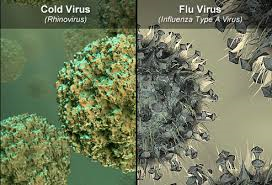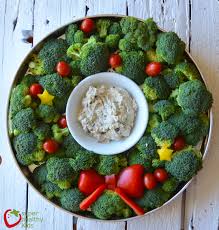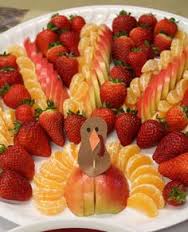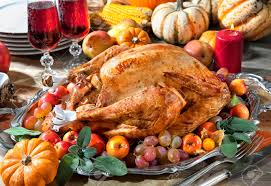Archive | December 2016
QUOTE FOR THURSDAY:
“It’s your own immune response that makes you feel ill,”
Professor Ron Eccles of the Common Cold Centre in Cardiff, where experts have researched the common cold for more than 20 years.
The sneezing cold!
When you get a cold, the virus attacks the nose and the back of the throat, and it doesn’t take long for the body’s natural defences to start to work.
“The immune system detects the virus and floods the area with white blood cells and chemical messengers, and these trigger various symptoms such as headaches and a blocked nose.”
“Women have more colds than men, and this is probably due to increased interaction with children,” says Professor Eccles. Children get around seven to ten colds a year, compared with two to three for adults. So people who spend a lot of time with children, such as childminders, nursery teachers or school teachers, are more likely to pick up the viruses.
“During a cold, the lining of your nose is the battlefront,” says Professor Eccles. When your nose feels blocked, it isn’t because it’s full of mucus, but because the blood vessels in your nose are inflamed.
The nasal lining is made from erectile tissue (similar to the tissue in the sexual organs). When you have a cold, the blood vessels swell up as infection-fighting white blood cells flood to the area. This narrows the air passage in your nose and restricts the airflow as you breathe.
A decongestant spray can reduce the swelling and allow you to breathe more easily.
The cold is not unusual if a sore throat comes along with it also. They are common in winter and are almost always caused by viral infections. There’s some evidence that changes in temperature, such as going from a warm, centrally heated room to the icy outdoors, can also affect the throat.
Cold air is a major trigger of asthma symptoms such as wheezing and shortness of breath. People with asthma should be especially careful in winter. Key steps in helping prevent the asthma attack to occur:
- Keep taking your regular preventer medicines as prescribed by your doctor.
- If you know that cold air triggers your asthma, take one or two puffs of your reliever inhaler before going outside.
- Keep your blue reliever inhaler with you at all times.
- Wrap up well and wear a scarf over your nose and mouth – this will help to warm up the air before you breathe it in.
- Take extra care when exercising in cold weather. Warm up for 10-15 minutes and take one or two puffs of your reliever inhaler before you start.
Continue to be careful in this winter weather and stay healthy at your optimal level. in dealing with this freezing cold.
QUOTE FOR WEDNESDAY:
“Skip the Chinese takeout. The slow cooker beats out the delivery man easily with a lighter version of your favorite dish, cooked with fresh ginger and topped with sliced red chilies.”
GoodHouseKeeping.com
Stay Healthy during the holiday season!
When going to a party or gathering, bring a nutritious but festive dish to share! Something like a salad, a veggie platter, a fruit salad, or healthy homemade snacks. This ensures that there is at least something healthy to eat! Some cute ideas include: Fruit Grinch Santa’s, Fruit Tree, Banana Snow men, Grape and Cheese Christmas Tree Platter, & String Cheese Snowmen.
When you know you’ll be out and about Christmas shopping, running errands, or going to festivities, plan ahead and never leave the house without a healthy snack. This way, if you can’t find any healthy option, you don’t starve and give in to the temptations. Things such as homemade energy balls or bars, low-sugar trail mix, fruit and cheese, or veggies and hummus can make for great, and filling, snacks. Aim to eat regularly to avoid overeating, especially of the wrong foods!
On Christmas day, make a balanced and healthy breakfast! Include some fresh fruit and healthy protein. Making a yummy breakfast Christmas morning can be healthy and fun, like whole grain pancakes shaped as a reindeer face. This can be a great way all around to enjoy and look forward to healthy foods!
While not everyone is going to completely abstain from any and all sweets and festive foods during the holidays, at least aim to load up your plate with the healthy, nutritious options first. This will dull your hunger and appetite so you are less likely to overeat the bad stuff! This is also a good time to practice portion control, especially when it comes to the desserts and high-sugar drinks.
Instead of dessert, or at least instead of a full serving of dessert, have a cup of herbal tea prior to eating the sweets. The tea will help make you feel full and less likely to scarf down the treats, while also providing some antioxidants!
Set goals for yourself and have a support group. Having a friend or family member to set goals with can be a great way to stay motivated and accountable during this particularly tempting time. Make goals like maintaining your workout schedule or avoiding processed sugar during the holidays. Having a friend working towards a goal with you helps you stay focused and on track!
There is always Exercise. Keeping on track with your normal exercise routine is especially difficult with the extra business around the holidays. But making it a priority to exercise regularly this time of year not only helps you stay on track, but also helps decrease your appetite for junk food!
Don’t keep tempting things around the house. Friends and neighbors commonly deliver sweets and treats during this time of year, and while we all genuinely appreciate the sincere gesture of friendship and kindness, keeping and eating all the cookies and treats delivered to you doesn’t do you any good! If necessary, take a bite or two, but toss the rest (or maybe re-gift it) so it’s not there tempting you to indulge.
Drink plenty of water. Make sure, as you go throughout your day, you are sufficiently hydrated. Even slight dehydration can trick us into thinking we’re hungry, and, therefore, we are more likely to overeat and give in to those treats!
Don’t be afraid to say no. If you know you’ll be going to a party or event that won’t offer any nutritious options, eat before you go. This way you won’t have to turn to the high sugar, high calorie, high fat foods that don’t promote health and fitness.
Always remember that your health is up to you! There are a multitude of ideas and tips on resources such as positive direction to help make your favorite dishes and snacks healthier but still fun and festive! Try to branch out this year and do a healthy makeover of your favorite traditional holiday goodies with even some healthy new modern dishes so you’re not left feeling overweight or unhealthy after the season is over! Where you don’t regret the passing holiday but have a great memory of what your holiday season was like!
Enjoy and happy holidays!
QUOTE FOR TUESDAY:
“They said I was a valued customer, now they send me hate mail.”
― Sophie Kinsella, Confessions of a Shopaholic (a British author and The first two novels in her best-selling Shopaholic series, The Secret Dreamworld of a Shopaholic and Shopaholic Abroad were adapted into the film Confessions of a Shopaholic starring Isla Fisher.
QUOTE FOR MONDAY:
Kofi Annan (A Foreign Diplomat, The former United Nations Secretary General Jan 1997 to Dec. 2006)
We hope all had a great Christmas Weekend!!
QUOTE FOR WEDNESDAY:
“Deadly heart attacks increase during the winter holiday season. One study even found distinct spikes around Christmas and New Year’s Day.”
WEB M.D.
The holiday season and how it impacts the heart with increasing the risk of heart attacks!
It’s the holiday season—cardiac patients not careful in eating but indulging in junk food may put you at high risk for a bomb to go off in the heart=heart attack.
While colder weather may play a role, studies have shown that the spike in heart events during the holiday season occurs even in It’s no secret that holiday celebrations offer many temptations to overindulge. Many holiday foods are high in saturated fats or sodium. Overindulgence in these foods can increase cholesterol levels or blood pressure, making it more difficult for blood to flow through arteries and upping the chance of a blockage. What you may not know is that eating a heavy holiday meal may affect you even after you’ve pushed away from the table. “Research shows that anyone with coronary-artery disease or high cholesterol has a heightened risk for heart attack for up to one day after eating a heavy meal,” said Mittleman. Mittleman participated in a study, “Heavy Meals May Trigger Heart Attacks,” led by Francisco Lopez-Jimenez, MD, currently the Director of the Cardio-metabolic Program at the Mayo Clinic. This study, which focused on nearly 2,000 former heart attack patients, found that 10 percent of them suffered a coronary within 26 hours of eating a heavy meal.
“People often change their eating habits during the holidays,” said Dr. Anne Riley, a cardiologist at BIDMC. “For those with congestive heart failure [CHF], salty foods can cause fluid retention and high blood pressure, which place added stress on an already weakened heart.”
Your heart may leap with delight at the electronic gizmo or emerald bracelet that you’ve just unwrapped from under the Christmas tree. But you can’t say the same for that nasty holiday surprise known as the “Merry Christmas coronary” or “Happy Hanukkah heart attack.”
For many years, researchers have been intrigued by a disturbing pattern: Deadly heart attacks increase during the winter holiday season. One study even found distinct spikes around Christmas and New Year’s Day.
Amazing Facts About Heart Health and Heart Disease:
You can feel your heart thudding away every time you put your hand to your chest, but do you have any idea what’s really going on in there or what keeps your heart ticking as it should? WebMD the Magazine asked Richard Krasuski, MD, director of Adult Congenital Heart Disease Services and a staff cardiologist at the Cleveland Clinic, to help explain some amazing and little-known facts about the human heart.
Facts About Heart Health and Heart Disease:
“We certainly know that there are certain risk factors for coronary artery disease. There’s obviously smoking, hypertension, dyslipidemia [high cholesterol], diabetes, lack of exercise, and age,” says Robert A. Kloner, MD, PhD, a researcher at Good Samaritan Hospital in Los Angeles and a professor at the Keck School of Medicine at the University of Southern California.
“But we’re also learning that there are certain triggers for cardiovascular events,” he adds, “including time of the year and seasons. If we can get a true handle on the seasonal variation, we could knock down death from coronary disease.”
Coronary artery disease stems from atherosclerosis, a condition in which fatty plaques narrow the arteries to the heart. When a plaque ruptures, it can trigger a blood clot that leads to a heart attack.
In a national 2004 study published in Circulation, researchers at the University of California, San Diego, and Tufts University School of Medicine examined 53 million U.S. death certificates from 1973 to 2001. They discovered an overall increase of 5% more heart-related deaths during the holiday season. When researchers looked at individual years, they found varying increases in cardiac deaths for every holiday period they studied, except two.
Doctors have long known that cold weather is hard on the heart. Blood vessels constrict, which raises blood pressure. Blood also clots more readily. Frigid temperatures increase strain on the heart, and too much physical exertion can worsen the burden and trigger a heart attack. For example, doctors have treated many patients whose heart attacks followed strenuous snow shoveling.
Not to put a damper on holiday frivolity, but heart attacks increase during winter. For one reason, cold weather is tough on the heart. Blood vessels constrict, which causes blood pressure to rise. Additionally, blood clots more easily. (I’m getting this info, by the way, from the boldface link a sentence or two ago).
“People tend to consume much more fat, salt, sugar, and alcohol during the holiday season,” says Roberto Wayhs, MD, chief of cardiology at Methodist Charlton Medical Center. “Also, people tend to be less active due to the cooler weather. Overindulgence of food and alcohol along with inactivity raises the blood pressure and cholesterol levels. These risk factors combined increase your chances of having congestive heart failure, a stroke, or even a heart attack.”
To put a stop to that, or at least decrease your chances, he offers these tips:
Limit foods and beverages that are salty and/or rich. Blood pressure tends to go up the more salt you intake. Rich and sugary foods raise blood sugar levels.
Be consistent in taking your daily medications. You need them at all times of the year to maintain good health.
Get enough sleep. Sleep loss is related to weight gain, which also can affect the heart. Aim for at least seven hours.
Control your stress. “Holiday sadness adds stress,” Wayhs says. “Don’t be afraid to seek professional help if you need it.”
Limit alcohol intake. “High alcohol intake has been linked to irregular and rapid heartbeats (atrial fibrillation) and congestive heart failure,” says Dr. Wayhs.
Maintain your normal exercise routine. “Don’t place your healthy habits on the back burner,” he says.
If you don’t have time for your usual workouts, try a shorter one.
Oh and, of course, stop smoking. But you knew that already.











